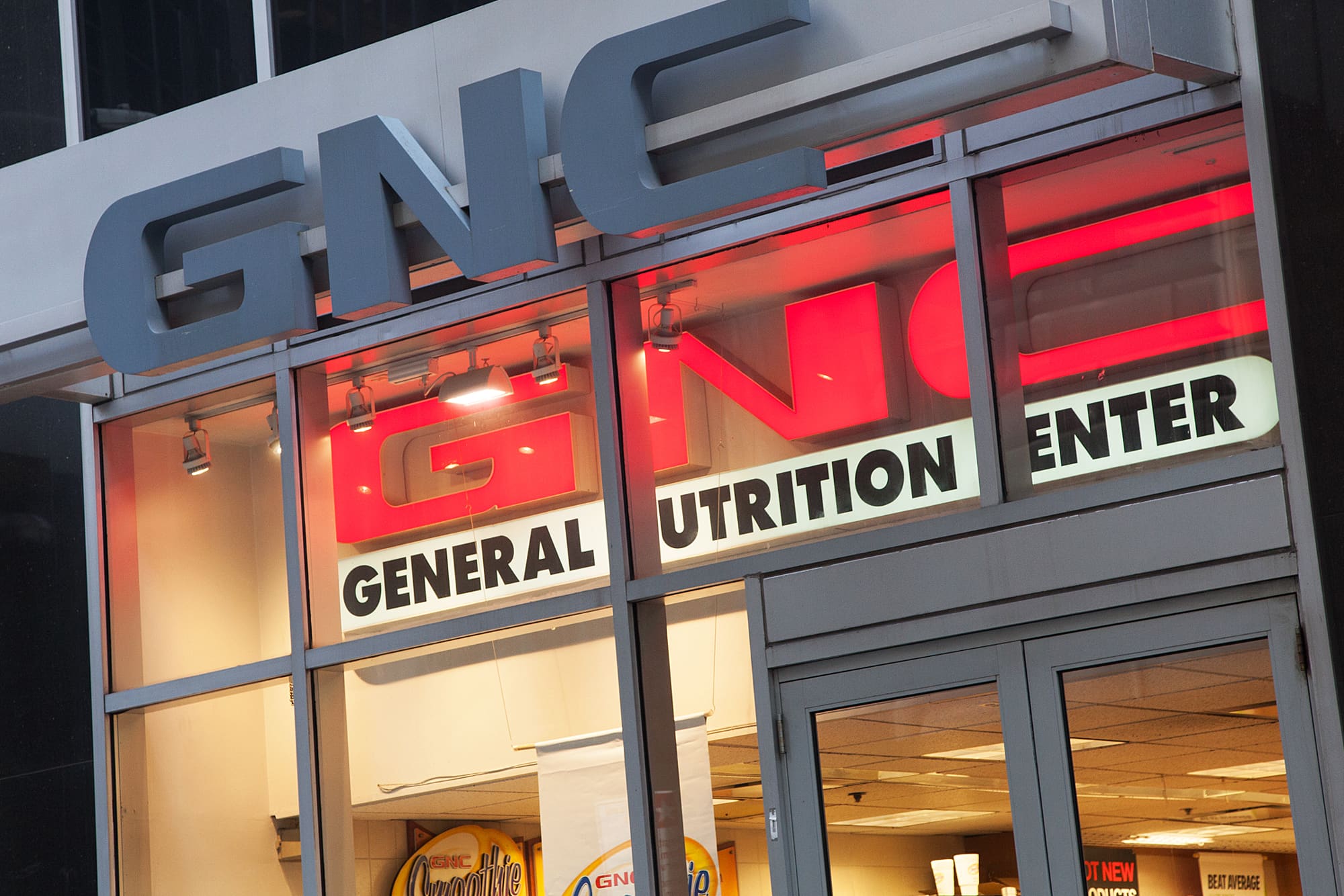For decades GNC has been the one-stop shop for vitamins, muscle-building protein powder packs and practically every variety of weight-loss product.
From New England to Southern California, chances are if you ever needed a potassium boost, there was a GNC at a nearby mall.
But the company that urged Americans to “Live Well” has fallen on tough times. In June, GNC filed for protection from creditors in bankruptcy court, with plans to close about 1,000 locations — more than 10% of its global footprint.
The vitamin and dietary supplement market in the U.S. is worth almost $50 billion, according to the Nutrition Business Journal.
Brick-and-mortar retailers like GNC, The Vitamin Shoppe and Vitamin World have faced an onslaught of competition from big-box retailers like Walmart and Target, grocery stores like Kroger and Whole Foods and e-commerce giants like Amazon.
After years of falling sales and mounting debt, GNC saw a steep drop in revenue after the coronavirus pandemic forced thousands of its locations to temporarily close. But anxiety around Covid-19 has actually pushed health and wellness concerns to the top of most people’s agenda, and that has caused sales of immunity dietary supplements like Vitamin C to skyrocket.
So after 85 years in business, why wasn’t GNC able to capitalize on the latest dietary supplement boom and what factors led to the company’s bankruptcy filing? Watch the video to find out.
